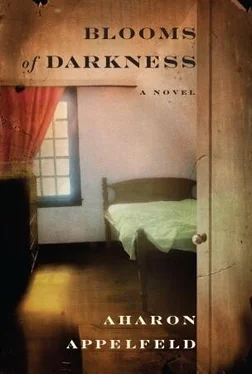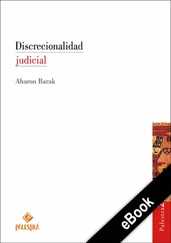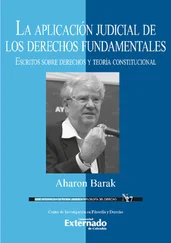The winter is now at its height. It now seems as if Hugo has been separated from his mother for a long time, a time crammed with events he doesn’t understand. His dreams remain clear, but not with a clarity you can touch. They are accompanied by a strange geometrical dimension. At first that seemed like a prank to him, but soon he realized that the forms were indeed repeated. His mother, for example, wore a triangular hat. He was surprised by that form, but he thought only of a general statement: “People aren’t shaped in geometrical forms. The dreams have become confused for me.”
But his memory is clear and palpable. In the winter, over Christmas vacation, Hugo’s family used to travel to the Carpathian Mountains. That was a joy unlike any other joy. His parents skied with elegant grace. His father was faster, but his mother didn’t lag far behind. Hugo learned the sport without difficulty. At the age of nine he already skied easily, without stumbling.
Hugo had always loved trips. It was too bad that his parents didn’t have time to take long vacations. During vacations, the daily routine changed according to the weather. There was no sign of haste or rush. Every morning, the peasant woman from whom they rented the cabin would bring them a pitcher of milk, a loaf of bread, a wedge of cheese, and a packet of golden butter. They were vegetarians, and the peasant woman found it hard to absorb that. She repeatedly expressed surprise. “Why abstain from salt pork or a little beef?” When his mother told her, “Vegetables and dairy products are enough for us,” the peasant woman would make a strange gesture with her head, as if to say, Even so, without meat a person isn’t satisfied .
During winter vacation his father appeared at his full height. When he spoke with people back home, he usually stooped. For that reason he sometimes seemed to be the same height as Hugo’s mother. During winter vacation, it became clear to everyone that he was a head taller.
Winter vacation was always accompanied by a feeling of soaring — perhaps because of the splendor of the snow, or the long and bright nights. They would drink punch and read until late at night. They spoke little, but sometimes his mother would recall memories from her student days at the university.
The cabin, the horse and sleigh that were at their disposal, the blankets they wrapped themselves in while riding, the thermos bottles and sandwiches, the little bells that hung around the horse’s neck — all that earthiness seemed marvelous to Hugo. All fears were erased. Just he and his parents, just he soaring on skis over the glowing snow. School, tests, obligations, and frictions were all erased, as if they had never existed, and Hugo and his parents were what they wanted to be: lovers of nature and lovers of books.
The vacation would end abruptly. At night his mother would pack the suitcases and at first light they would mount the sleigh and go to the railroad station. That cold sundering, which took place early in the morning, would make Hugo shudder and cry. His mother would say, “You mustn’t cry about transitory things. Mama and Papa would also like to stay here longer, but it’s impossible to close the pharmacy for longer than a week.”
Suddenly, that bright life is revealed to him in the closet, appearing before his eyes as it did while it was actually happening.
At noon the door to Mariana’s room is opened cautiously, and then the closet door. Victoria tells Hugo right away that soldiers are making house-to-house searches. He must lie still and not make a sound.
“Here are sandwiches and milk. If the searches stop, I’ll bring you something else at night, but don’t expect me.”
“What should I do?”
“Nothing. Lie down as if you didn’t exist.”
“And if they break in?”
“Don’t worry, we won’t let them,” she says, and shuts the closet door.
Victoria’s words don’t calm Hugo. He lies on his couch as though paralyzed. All the captivating visions that had raised his spirits just a short time ago have vanished. The thought that in a moment soldiers will break in, arrest him, and bring him to the police station fills him with dread and weakens his knees.
That evening the twilight is long between the cracks in the closet wall, and it gets dark slowly. There are no noises, and for a moment it seems to him that the night will pass without an incursion from outside. Everything will be accomplished quietly, with whispers and grunts. But that’s only an illusion. As the night begins, the pounding of hammers is heard, as is the noise of furniture being moved. The commotion continues for a long time. Suddenly, with no warning, as though to contradict everything that was threatening him, an accordion breaks into song. A saxophone joins in immediately. Hugo is astonished. Now Victoria’s sowing of fear sounds like an empty threat.
For a long time Hugo lies still and listens. The merry music grows louder and louder, feet stamp, voices shout. Above the din, women’s laughter is heard. It sounds as though someone was tickling them. This mysterious place, which encloses him on all sides, suddenly seems like Mr. Herzig’s banquet hall, where weddings and parties were held, and where Uncle Sigmund had been married.
When he was drunk, Uncle Sigmund would often present Mr. Herzig’s banquet hall as a prime example. Mr. Herzig’s hall, disgustingly splendid, was the palace of the Jewish petite bourgeoisie. In it they would get engaged, marry, celebrate circumcisions and bar mitzvahs, and of course silver and golden wedding anniversaries. Uncle Sigmund loathed the Jewish petite bourgeoisie ensconced in large houses, in gigantic department stores, in fine restaurants, and in splendid catering halls. In his drunkenness, he would shout, “They’re empty, they’re overblown, they’re golems whose souls have departed.” He was particularly angered by Mr. Herzig’s palace, where the men would compete among themselves as to who could provide the most splendid meals and at whose party they served the fullest plates. His former wife embodied them fully. Uncle Sigmund constantly wondered how he could have been caught in that net. He said repeatedly, “In the world to come, if there is such a thing, they’ll thrash me because I was blind and didn’t see what any sensible person can see. I deserve it. I deserve it.”
The music and debauched laughter last until late at night and then suddenly fall silent, as though the dancers have collapsed.
In the last darkness of the night, Mariana’s door is opened, and then the closet door. Victoria stands in the doorway and immediately tells Hugo, “You’re lucky. All around us they made careful night searches. Apparently because of the big party that was here, they didn’t come in, but who knows?”
“What am I supposed to do?” Hugo asks with a trembling voice.
“Pray.”
“I don’t know how to pray.”
“Didn’t your parents teach you?”
“No.”
“That’s strange. You didn’t go to synagogue?”
“No.”
“Every hour, say, ‘God Lord, save me from death.’ ”
“Should I kiss the cross?” Hugo asks.
“That’s desirable. In a little while I’ll bring you a cup of milk and some sandwiches. But don’t expect me later today. The soldiers are going from house to house and looking for Jews, and it’s not a good idea to wander around here. Do you understand me?”
“I understand. Thank you.”
“Don’t thank me, pray to God,” Victoria says, and shuts the closet door.
The next morning Victoria again comes late with the cup of milk, and she tell Hugo that searches are still going on in the nearby houses. In one house they found a Jewish family with three children. They arrested the family and the owners of the house who gave them shelter, and all of them were taken to the police station.
Читать дальше












